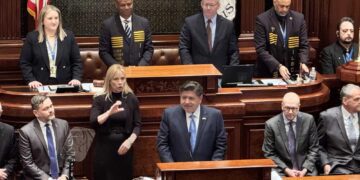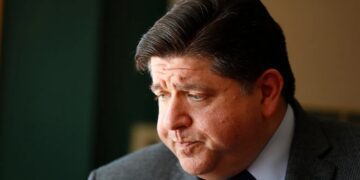Herman Wouk died last month.
Just 10 days shy of his 104th birthday, he simply went to sleep one night and never woke up, the way we should all check out should we be blessed with such a long, productive life.
Born in New York into a religious family, Wouk was educated at Columbia University and served as a naval officer in the Pacific during the Second World War. He began his career writing jokes for radio comedian Fred Allen, but soon switched to novels, becoming one of the first popular writers to explicitly describe the everyday lives of Jewish Americans.
The man once described as “The Jackie Robinson of Jewish American fiction” gave us the classics “Marjorie Morningstar,” the story of a Jewish girl from the Bronx who dreams of stardom only to finally settle for a middle-class “normal” life; “The Caine Mutiny,” for which he won a Pulitzer Prize, a gripping narrative of an unstable ship’s captain that ends in a court marshal of the officers behind the mutiny. He also wrote non-fiction, concentrating on Judaism in “This is My God,” and “The Will to Live On,” both of which sought to describe and explain Judaism in terms of its religious, historical, and cultural significance.
But if critics and literary historians are reasonably fair, he will be best remembered for “The Winds of War,” and its sequel, “War and Remembrance,” the sweeping two-part historical romance set during the Second World War.
Focusing on the lives of several families, including a naval officer, an English journalist, and a prominent Jewish historian, Wouk blends his characters with historical figures during actual events to bring a measure of explanation to the worst man-made disaster in world history.
My introduction to Wouk was when my Grandmother gave me copy of TWOW shortly after it first published in paperback, which must have been sometime in the early seventies, since it was first published in 1971. I was still living at home and attending a community college in the area.
For a number of reasons, the book impressed me like few ever have. First, I’m unusually interested in anything connected with the Second World War. Several family members served in various theaters of the war. My birth father fought in the battle to take Saipan; my Grandfather, lying about his real age—35–to get in the Army, commanded a 90mm anti-aircraft gun in the Solomon Islands. One uncle served in Europe; another in the Pacific.
People are naturally inclined to be curious about the era immediately preceding their own, especially regarding their family’s involvement. But personal interest aside, one would have to live in a cave during the fifties/sixties era to avoid being familiar with information about the war; movies and books about the conflict were a constant feature of popular culture.
I also identified with Byron Henry, the younger of the naval officer’s two sons. He had a rootless, unfocused nature that hindered his studies and was naturally the bane of his parent’s existence, especially his father. Without delving too deeply into my youthful inclinations, let’s just say that I could relate.
But there was another reason, specific to the 1970s, that the saga of the Henry family resonated.
The nation had just gone through the upheaval and chaos of the sixties, a decade where issues of race and the Viet Nam War divided the nation worse than any time since the Civil War.
And race and the war were only the main fault lines in the social fabric of the era. We were also dealing with a slowing economy, class issues, the sexual revolution, the first stirrings of the gay rights movement, and the reawakening of the feminist movement, dormant since the earlier in the century.
By the early 1970s, the country was, as one of my closest friends said, “in political chaos, military chaos and economic chaos.”
The anti-American counterculture that seems so strange today (or maybe not so strange, if you listen to some Democrat politicians and journalists), the bombing of government installations, taking over university buildings and celebrating criminals like the Black Panthers and Che Guevara was, contrary to all notions of logic and common sense, actually started to gain respectability in certain circles, especially the media, the arts and education.
The verdict from many opinion-makers was in, and it wasn’t pretty: America was a terrible place, filled with racists, greedy capitalists, and corrupt politicians. Above all, it was understood that America was a categorically-malign influence on the world stage, doing nothing but harm to Third World nations.
Wouk’s story of the nation’s greatest endeavor of the century ran directly counter to the notion of fascist Amerika, so popular with the hard left of the era.
He told the story of a less cynical America, one that sacrificed lives and treasure to help beat back fascism and set the stage for the beginnings of a thriving world market economy that lifted more people out of poverty than any other system devised by man.
It was a story of stunning bravery, unquestioned love of country and a national unity that one can only marvel at from the perspective of the 21st Century. It was the story that many of my family members lived and I grew up learning about during the sixties. It was a powerful anecdote to the narrative I was hearing from some of my teachers and various opinion-makers of the day.
Wouk didn’t sugarcoat the era. He noted the casual racism, the occasional cowardice that coexisted with the bravery, and the colossal blunders that powerful men made, including Hitler’s tactical errors and Stalin’s obliviousness. He didn’t refrain from showing Roosevelt’s deviousness and Churchill’s stubbornness and flights of fancy.
Totaling about 2,000 pages, the two volumes might seem daunting to the modern reader used to the 300-page extended editorials that pass for books these days. But they are worth the effort.







